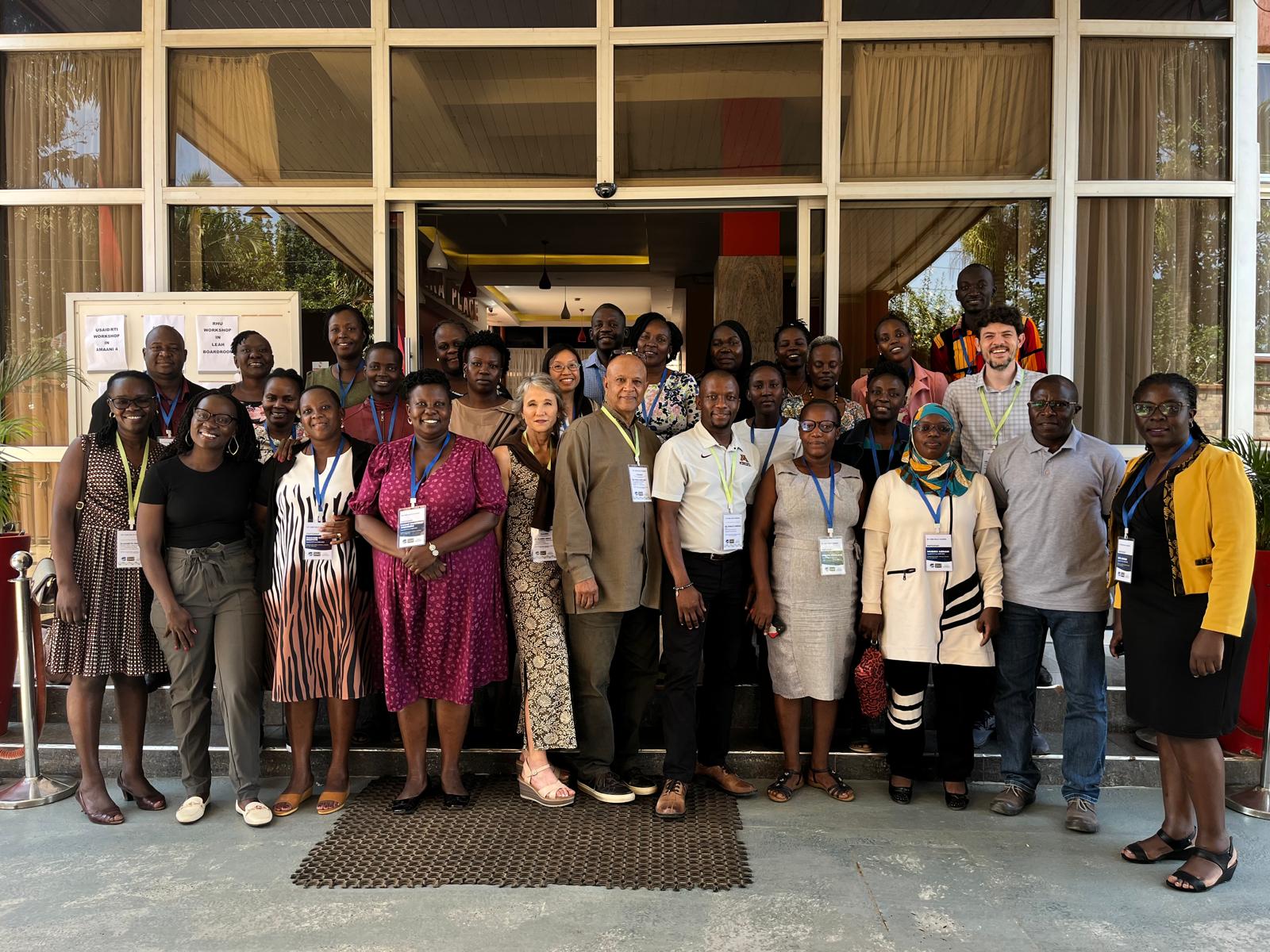Emotionally Focused Couple Therapy (EFCT) is one of very few relationship therapy models with evidence of effectiveness in diverse cultural contexts. However, most of this research has been conducted in North American and European contexts and more work needs to be done to investigate the model’s transferability to African contexts. As part of this objective, Prof. Elmien Lesch and a team of international collaborators organised and supported the training of 80 Ugandan mental health professionals in EFCT. The training was led by Prof. Lesch and Dr Paul Guillory (Assoc. Clinical Professor, UC Berkely, US), and presented in Kampala from 4 – 7 July 2023. After this successful first EFCT externship, we followed it up with the more advanced and intensive four-day core skills training in July 2024. In this training, the number of participants was limited to 30 to enable a training space that allowed plentiful discussion and practice of EFCT principles and interventions.
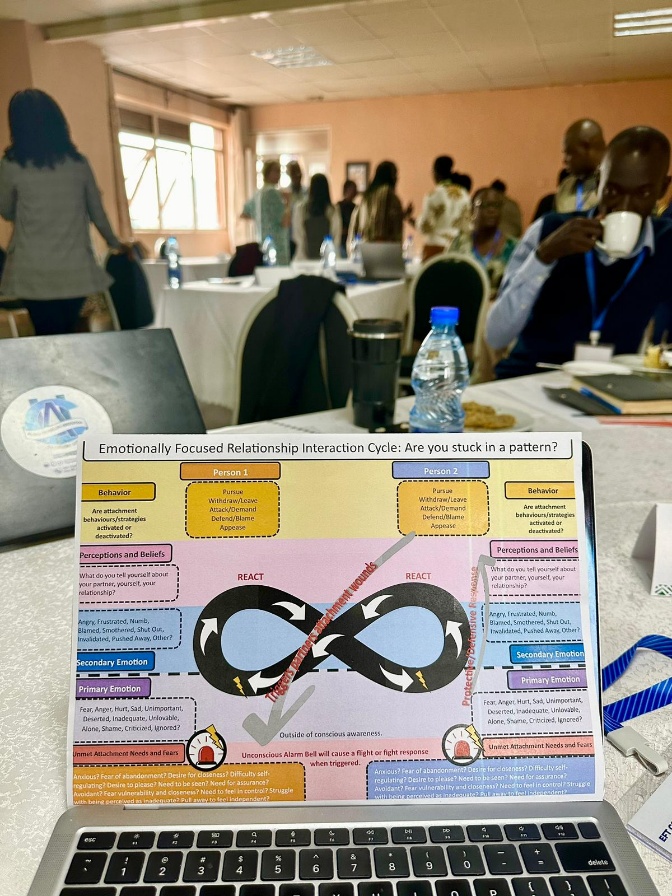
Coffee break: EFCT Core Skills Training, Kampala
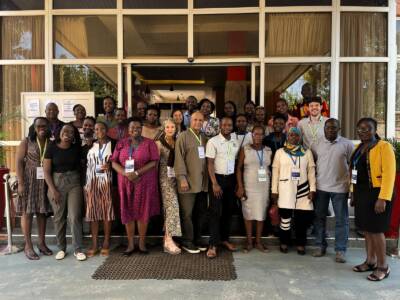
EFCT Core Skills Training Team and Participants at the end of the four-day training

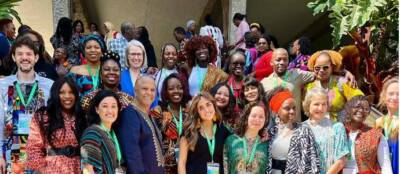
The multicultural team of EFT Trainers and Therapists presenting and supporting the training.
Kenya: A team of 10 Kenyan psychologists and counselors traveled to Kampala, Uganda, to attend the EFCT externship in July 2023. Most of these practitioners were members and leaders of local mental health associations in Kenya, such as the Systemic Family Therapy Association (SFTA) Kenya and Peace Together. Inspired by their experiences at this training in Kampala, they partnered with Conexa East Africa to form the “Pamoja” (“Together” in Swahili) team and hosted the first EFCT training in Nairobi, Kenya, June 24th to 27th 2024. This training was also led by EFCT Trainers Prof. Elmien Lesch and Dr Paul Guillory.
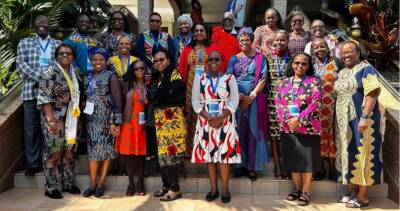
Some of the 122 participants attending the EFT Externship in Nairobi, Kenya.
Kenya: The participants provided encouraging feedback about their training experience. One professional, for example, said: “I gained invaluable and practical information that helped in overcoming a 7-month conflict of a couple I was assisting, profoundly altering my practice.” They also discussed potential challenges related to assisting couple partners to access and directly express vulnerable emotions – a pivotal focus in EFCT. Recognizing that emotions are universal, participants highlighted that a key to the successful implementation of EFCT in Kenya would be “figuring out unique ways in which Kenyans, especially men, show emotions and how to normalize rather than shame that emotional expression.”

